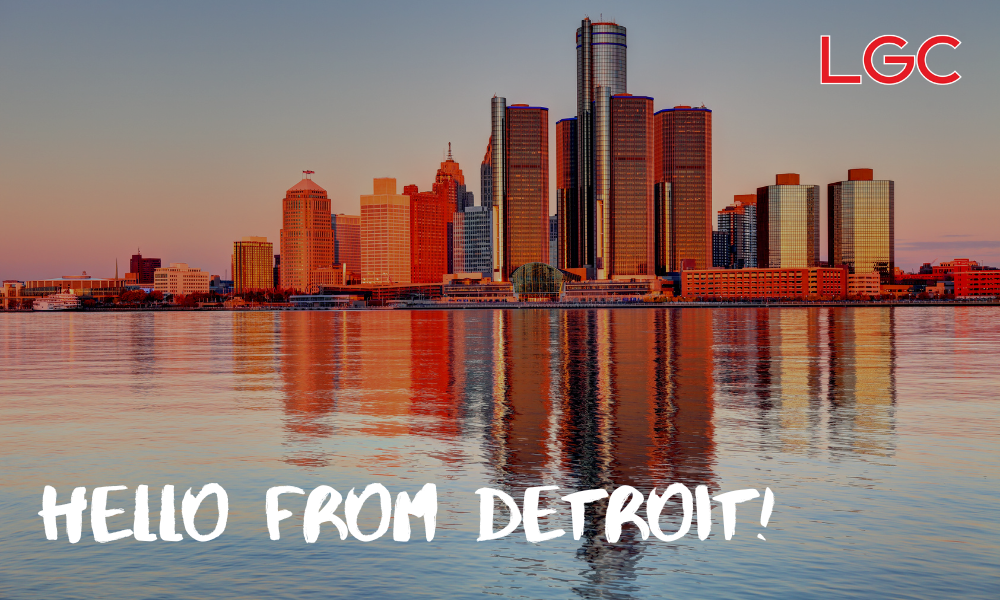Meet LGC Detroit. When LGC was founded in 2003, we were operating solely in Indianapolis. Over the past 18 years, we’ve expanded to more than 40 cities across the country. Each local office is diverse and integral to the success of LGC. This series will look at our offices individually, highlighting what makes them unique.
Meet LGC Detroit
With a population of over 4 million, Detroit is the second largest city in the Midwest (after Chicago) and sits nestled on the United States-Canada border. Detroit is often considered a major cultural hub because of its contributions to music and “as a repository for art, architecture and design, along with its historical automotive background.”
This month, the Detroit office celebrates its 14th anniversary as an LGC market. Opened in October 2007, LGC Detroit has been fortunate to be a part of some unique events across the city – especially in the sports world. This year we’re seeing more stadium work for baseball games, with larger requests and more frequent shifts as restrictions were lifted earlier this year. One change our LGC Detroit team reports is higher activity at college stadiums this year, bringing new opportunities to our workforce.
One of the most interesting things about this market is how job trends can vary throughout Michigan, just by driving a few miles in one direction or another. Statistical averages (like pay rates) that may be true overall for the state of Michigan can vary greatly from the “tri-county area” that we typically staff. (The “tri-county area” includes Macomb, Oakland, and Wayne counties and is often called Metro Detroit.)
Kayla Glazier, Regional Operations Manager that helps oversee LGC Detroit, says one of the biggest challenges to workers is the public transportation system. “Something people from other big cities may not realize is how awful the public transportation is here. You would think that Detroit would have a system, but it only has what buses still work, a “People Mover” that goes in a circle from downtown Detroit to connect parking garages to sports areas (some of which aren’t even occupied any longer), and a failed QLINE project.” Though 80% of people living in Detroit have personal transportation, the lack of consistent and reliable public transit can be a hindrance to those who need it to commute.
As for recovery efforts, Detroit is experiencing what many across the country are: a steady recovery but slow transition back to work. According to Kayla, “a lot of people in the Detroit area are still weary of COVID and apprehensive about interaction with the public.” This is likely in part to the amount of hospital work LGC Detroit is currently offering.
In the 14 years since its’ founding, LGC Detroit has been a force to be reckoned with. The Detroit office is currently being managed by three strong, influential women leaders at LGC and we can’t wait to see what they do in the future.
To learn more about the Detroit office, request staff, or find a great gig, contact them here: detroit@lgcassociates.com.

